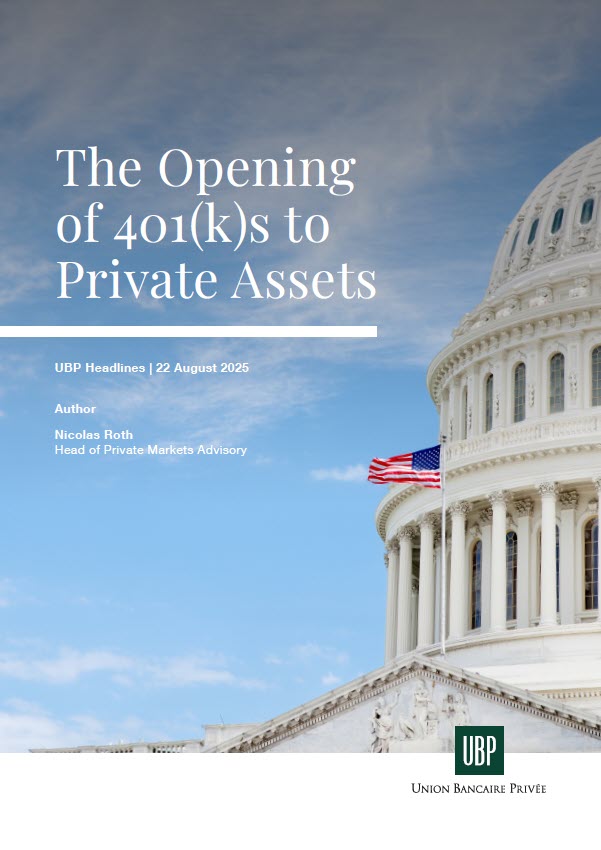An executive order is opening the door for private assets to access US defined-contribution pension schemes.
Key points
- A potential market of USD 12 trillion is in sight for managers of private assets.
- Success is not guaranteed (yet): there remain fee pressures, liquidity constraints and governance hurdles.
- Initial allocations may be modest, but the long-term revenue potential is significant.
- Is this the endgame for the democratisation of private markets?
Introduction
For several years, the idea of opening up corporate defined-contribution (DC) plans (also known as 401(k)s) to private markets has been floated around US retirement scheme policy discussions, appearing, disappearing and reappearing with fresh momentum, depending on which group was lobbying. This has now changed, as President Donald Trump signed an executive order in early August putting the topic back in the spotlight. The order gives the Department of Labor (DoL) and the Securities and Exchange Commission (SEC) 180 days to outline how private equity, real estate, infrastructure, and other illiquid assets, including digital assets, could find their way into defined-contribution pension portfolios.
The size of the DC market is massive: it represents more than 90 million participants and has an estimated USD 12 trillion in assets, and contributes a solid annualised growth rate to the entire retirement market. But potential is one thing, execution is another, and several key questions remain largely unanswered. Who will bring these products to market? Can the uneasy trade-off between fees, liquidity, and governance be resolved? And how quickly could adoption really take hold? Last, is this executive order a significant inflexion point for retirement savings or just another headline that will dissolve during the acid test?
Download our UBP Headlines for our experts’ insights.
The opinions expressed herein are correct as at 22 August 2025 and are subject to change without notice. Any forecast, projection or target, where provided, is indicative only and is not guaranteed in any way.










